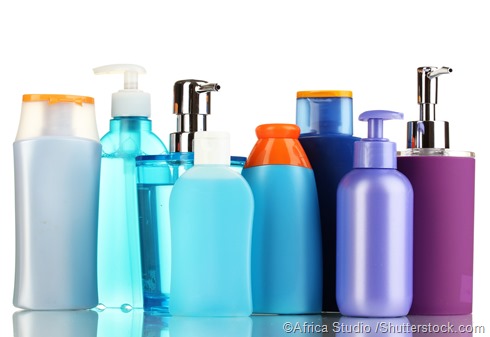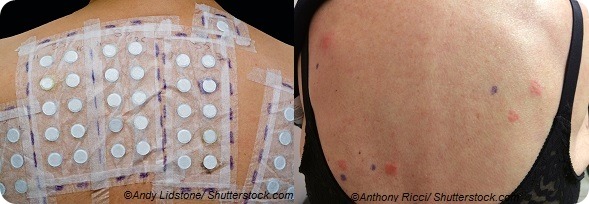Allergic Reaction to Skin Products
Skin products and cosmetics are commonly used to improve hygiene and appearance of the skin. They are safe and effective for most people, but some individuals may experience sensitivity or an allergic reaction in response to some products. The severity of the allergic reaction can vary greatly, from a mild rash to a severe allergic reaction.
The areas of the body that are most likely to be affected are usually more delicate, such as the thin folds of skin around the body and the face. In particular, the eyelids are prone to allergic reactions to skin products used around the eyes.
Types of products
There are many different types of skin products that may cause an allergic reaction is some individuals. These may include:
- Liquid foundation
- Mascara
- Face masks
- Toners
- Creams
Fragrances and preservatives that are ingredients of these products are the most common allergens to cause a skin reaction.

Allergic reaction
Allergic reactions occur due to the response of the immune system of the body, which may recognize an ingredient of certain skin products as an allergen and initiate a response.
Allergies are developed, and multiple or repeated exposure to the allergen is needed for the body to develop an allergy. Therefore, the allergic reaction does not usually occur the first time that a product is used, but after some time that a product has been used.
For some people, the allergy may present after using the same product for extended periods of time and the trigger for the development of the allergy is not clear. Once the allergy develops, the body usually retains sensitivity to the allergen for the duration of their life.
Irritation reaction
Some people with very sensitive skin may experience an irritation reaction immediately after applying the skin product to their skin. Signs and symptoms of this irritation may include itching, burning or stinging of the skin. This is more common in people who have other skin conditions (e.g. rosacea or dermatitis).
Management
If an allergic reaction to a skin product occurs, the first step is to identify the causative product and stop using it. It can sometimes be difficult to confirm which product is the culprit, particularly if the individual uses multiple cosmetic products.
The best course of action is to cease using all skin products until the reaction improves, which usually takes about a week. From that point onwards, the cosmetics can gradually be reintroduced one at a time, while observing the response of the skin. A topical steroid cream can also be applied to the affected area to help reduce the allergic reaction and allow the skin to recover more quickly.
Allergy patch testing
Patch testing is a technique that is commonly used by dermatologists to identify ingredients used in skin products that may be causing an individual to experience an allergic reaction. Small quantities of the ingredients that may be used in cosmetic products are applied to an area of skin, such as the upper back, and the reaction of the skin is observed over consecutive days.

Left: Patch test application. Right: Positive patch test results.
If a reaction to a particular allergen is identified, the individual with the allergic reaction can avoid cosmetics and skin products that contain that ingredient in the future.
References
- https://www.allergyuk.org/skin-allergy/allergy-to-cosmetics
- http://www.dermnetnz.org/topics/cosmetics-allergy/
- http://www.wsj.com/articles/surprise-allergies-to-natural-skin-care-products-1460999491
- https://medlineplus.gov/ency/article/000869.htm
- http://www.allergy.org.nz/A-Z+Allergies/Cosmetic+allergy.html
Further Reading
- All Allergy Content
- What are Allergies?
- Different Types of Allergies
- Old Friends Hypothesis
- What is the Microbial Diversity Hypothesis?
Last Updated: Feb 26, 2019

Written by
Yolanda Smith
Yolanda graduated with a Bachelor of Pharmacy at the University of South Australia and has experience working in both Australia and Italy. She is passionate about how medicine, diet and lifestyle affect our health and enjoys helping people understand this. In her spare time she loves to explore the world and learn about new cultures and languages.
Source: Read Full Article
